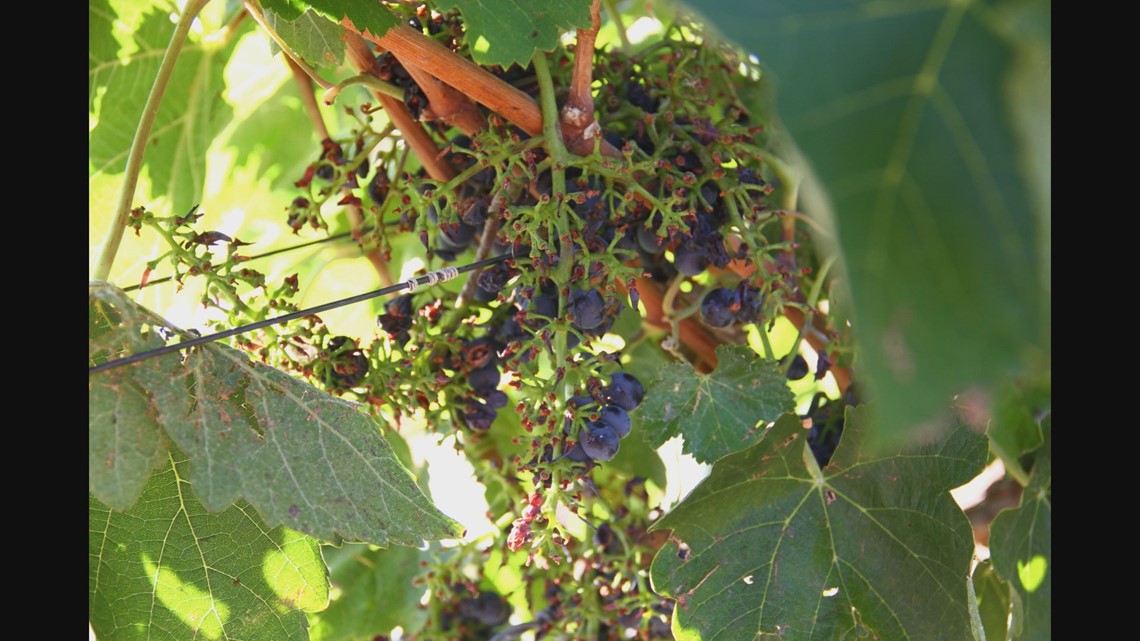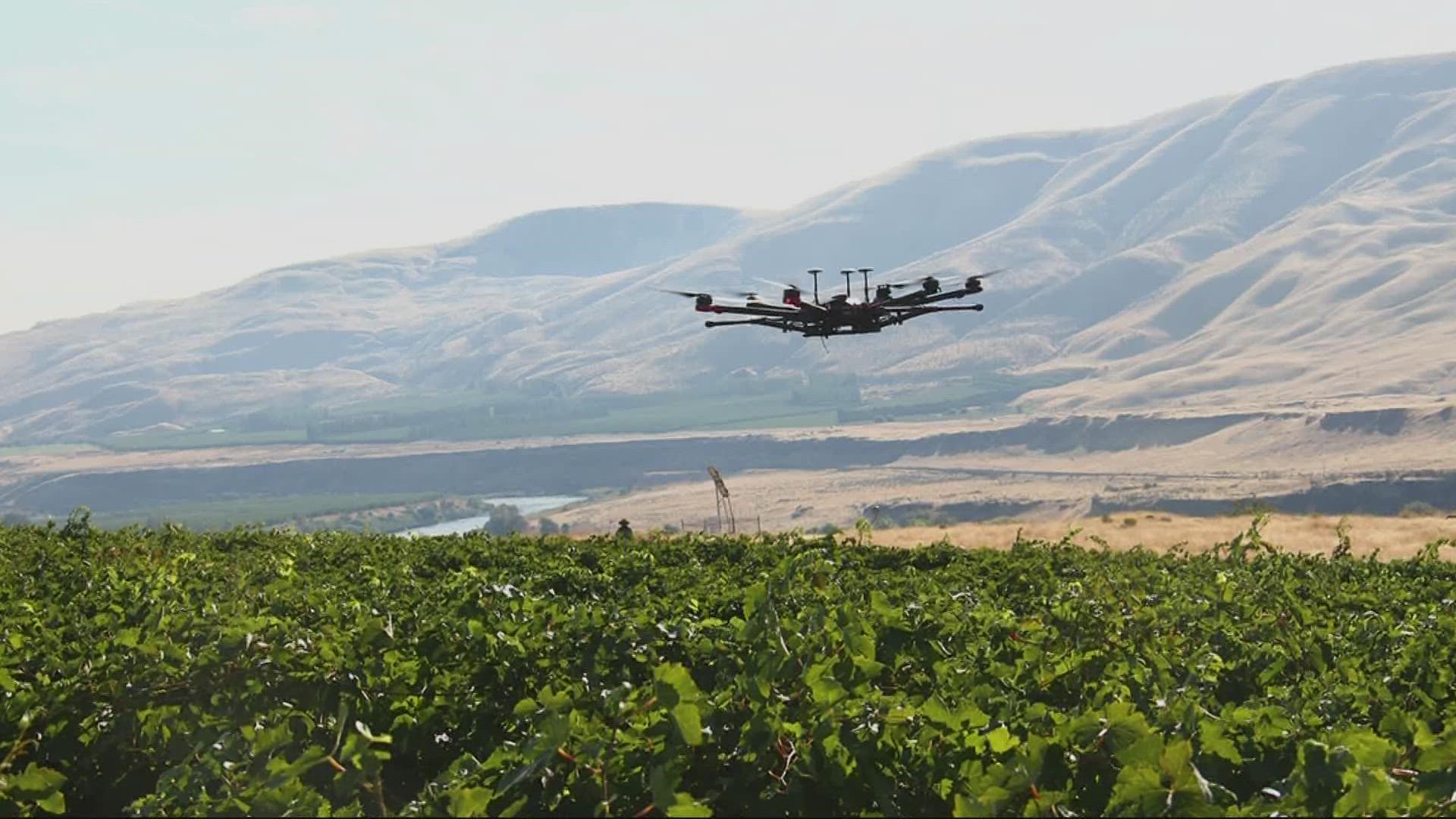PROSSER, Wash. — Drones are finding their way into more and more industries and use cases, and one of the latest ideas to emerge is crop protection. Washington State University (WSU) has a team working on a way to utilize drones to safeguard vineyards from birds.
Washington State boasts a bevy of beautiful vineyards, producing grapes for a sizeable and still-growing local wine industry. But a growing crop also makes it increasingly challenging to make sure harvests arrive intact.
Birds are a big obstacle, especially flocks of Starlings or Blackbirds that tend to fly in for dinner just when the grapes are about ready to pick. Birds will take whole grapes, and they also pick away at the bunches, which allows insects in to do more damage.
"Close to harvest or when the berry ripeness is high, they are more attracted to the fruit," said WSU graduate student Santosh Bhusal, who helped develop the university’s agricultural drone system.
The idea is that by scaring away the birds with drones, growers can avoid the type of damage that they normally expect to see every season.


Some grape growers currently employ netting to try to protect their crops, but it's expensive and labor intensive to set up and maintain. Others have turned to falconry to ward off smaller birds.
But now after four years of development, WSU’s agricultural drone system is getting some attention. The research team said it's still not perfected, but the technology has come a long way.
"What we saw is when we're flying drones, less and less birds were moving in and out of the vineyards compared to when we were not using the drone," Bhusal said.
In early manual drone flights at vineyards, researchers found a roughly 50% reduction in damaged fruit.
Further research helped the team develop an automated system using artificial intelligence that can detect birds in the area and launch and fly drones in response without a single human around.
Deterrence features may include shiny propellers and audio of birds of prey coming from the drone.
Commercial use for grapes or other crops is likely several years away, but the team said the early results show the concept has promise.
"Everyone seems to be excited, so it's something we have to explore more," Bhusal said.

